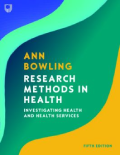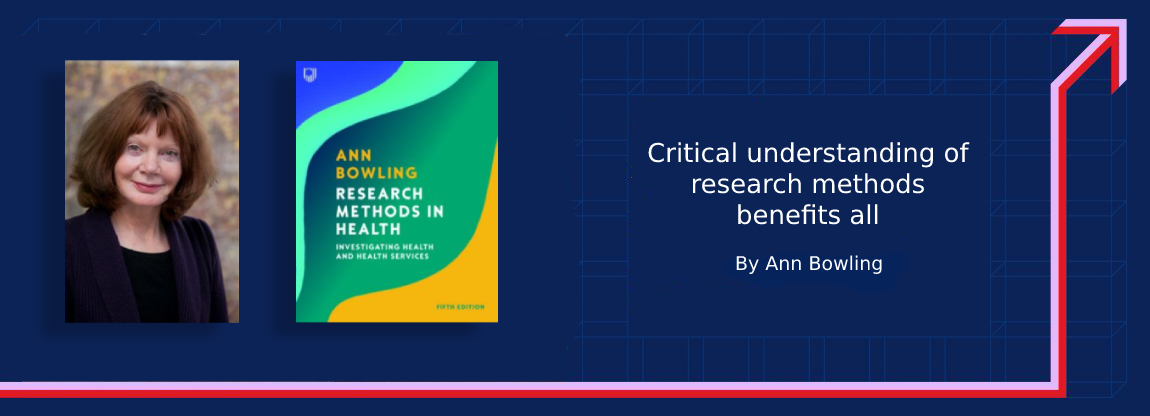Critical understanding of research methods benefits all
Critical understanding of research methods benefits all
My book, Research Methods in Health, now in its 5th edition, stemmed from my career in research on health and health service issues, as well as teaching students from different disciplines.
The book introduces the theory of research, descriptive and analytical research methods used in demography, epidemiology, health and social care professionals, health economics, health policy, historical research, public health, psychology and sociology. It is also intended as a resource for health and social care professionals, as well as the policy-makers responsible for applying research findings, and who need to know how to appraise the soundness of that research.
Everyone benefits from a critical awareness of the strengths and weaknesses of research methods. For example, the press frequently reports on topical research results, but rarely include much comment on the strengths and weaknesses of the methods they are based on:
- Top self-improvement tips to improve your quality of life in 2022 (telegraph.co.uk)
- COVID-19 Pandemic: Role of Justified Skepticism (arcgis.com)
- Music improves wellbeing and quality of life, research suggests | Health | The Guardian
- The music project helping people with dementia find their voice during lockdown | Older people | The Guardian
A critical awareness of research methods is important in order to dismiss weak and misleading research results and fake news stories:
The wider public also benefit if they are facilitated to be able to base their beliefs, decision making and actions on sound science:
Knowledge of which research issues merit using qualitative and/or quantitative research methods is also essential for investigators.
One of my own research interests has long been the measurement of quality of life, especially in older age, and in people’s own definitions of quality of life. It can be an important outcome indicator of health and social care interventions. The press regularly reports on international, regional and local research indicating where quality of life is better or worse, and among which social groups. For example:
But quality of life is a complex, subjective, multi-dimensional concept, and its measurement varies enormously, from routinely collected national and international indicators, a small number of questions about life satisfaction, well-being and/or overall ratings of quality of life, to multi-dimensional measures of different components of quality of life, which may be global, disease-related or health-related measures of quality of life. The measurement of quality of life is included in this book.
Since the first edition of Research Methods in Health was published in 1997, awareness of the importance of critical appraisal of published research has increased. There is also greater understanding of the value of multi-disciplinary research methods, and the multi-dimensional nature of concepts, including quality of life. There is more respect of different disciplines and of how the use of a combination of methods can often strengthen research conclusions. It is hoped that the book can contribute to this trend.
By Ann Bowling


Research Methods in Health: Investigating Health and Health Services

